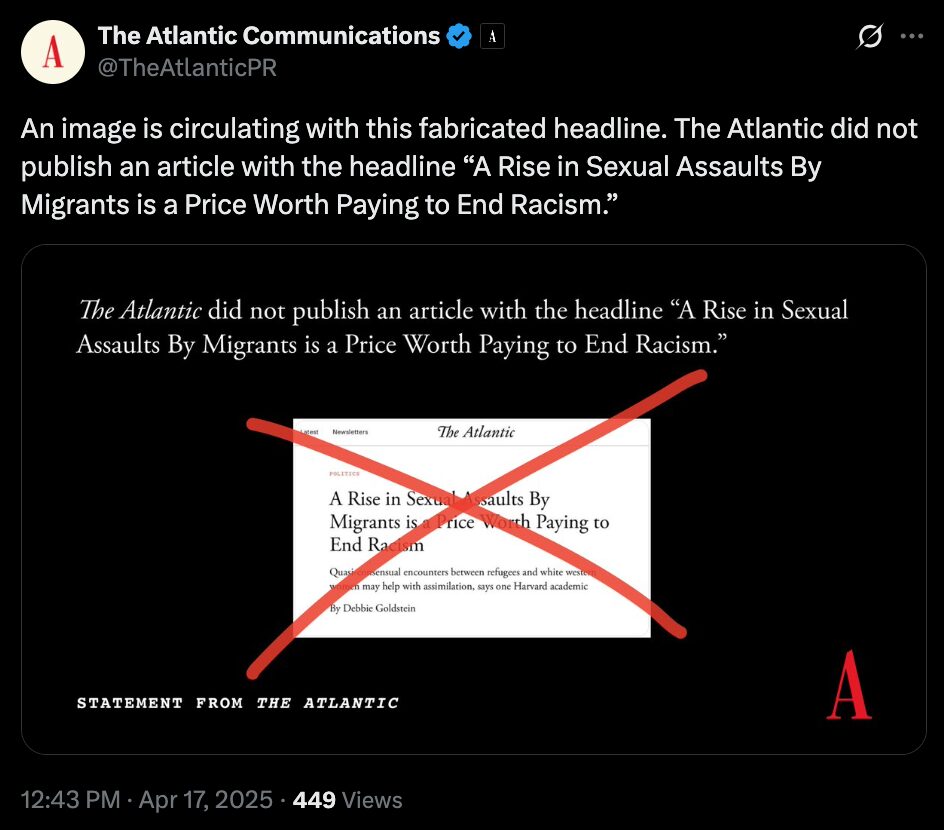Vivek Ramaswamy’s Shallow Understanding of the Deep State
How A Technocratic Spin Cycle Is Brainwashing America
Vivek Ramaswamy is not in the cabinet – he’s The Indian In The Cupboard. I’m sure this is an inside joke in their camp.
The term “deep state” has been thrown around so frequently in political discourse. Its meaning has been almost entirely stripped away. Once a term describing the complex entanglement of corporate interests, defense contractors, unelected officials, and policymakers, the deep state has become a catch-all for any vaguely-defined opposition to “the people.” Vivek Ramaswamy, biotech entrepreneur turned political candidate, has capitalized on this rhetorical decay, branding himself as the crusader who will root out this supposed government-within-a-government.

Yet Ramaswamy’s understanding of the deep state is not just shallow—it is fundamentally dishonest. Ironically, his arguments contradict the very concept laid out by Mike Lofgren, the former congressional staffer who popularized the term in his 2014 essay and book. By misrepresenting the deep state as a shadowy cabal of “unfireable” bureaucrats, Ramaswamy obscures its true nature: a sprawling, interconnected system of corporate and governmental collusion. Worse, his rhetoric distracts from what citizens can do to hold their government accountable—methods that are often mundane, unglamorous, and wholly unaligned with his populist showmanship.
Mike Lofgren’s Deep State vs. Vivek’s Myth
Though Vivek has positioned himself as bravely facing some cabal of unelected bureaucrats, he’s becoming one. It should be said that no citizen needs DOGE in order to communicate directly with any branch of the government at any level. They may stonewall you. You may become frustrated with them. But you’ll get a lot further going it on your own than you will sending a comment tweet to one of these guys. You’ll likely be directed to a facsimile if anything at all.

Mike Lofgren’s conception of the deep state acknowledged the role of unelected bureaucrats but framed them as one part of a much larger system. The deep state, as Lofgren described it, is a web of relationships among Wall Street financiers, Silicon Valley tech monopolies, defense contractors, lobbyists, and government institutions. This network operates to perpetuate its own power and wealth, often at the expense of public accountability.
But Lofgren never suggested that unelected officials were unaccountable in the way Ramaswamy implies. Bureaucrats can and do face oversight, albeit imperfectly, through a mix of internal mechanisms, public complaints, and legal actions. Moreover, Lofgren explicitly criticized the influence of private-sector actors—like Silicon Valley entrepreneurs and hedge fund managers—whose wealth and lobbying shape government far more than any mid-level federal employee ever could.
In contrast, Ramaswamy’s narrative reduces the deep state to a bogeyman of “unfireable” civil servants, implying that they are the true power behind the scenes. This framing conveniently ignores the corporate influence that Lofgren placed at the center of the deep state—and which Ramaswamy himself exemplifies, given his reliance on lobbying and venture capital in his career.
The Technocratic Spin Cycle
Since Elon Musk & Vivek Ramaswamy announcement their little partnership, many high profile technocratic figures have emerged to support them. One of the newest, and most irritating voices from this “movement,” is Marc Andreessen. He has found a penchant for utilizing media to disinform the public about how government is established to put guardrails on the negative impact they can have on the rest of us.



Ramaswamy’s shallow critique aligns with what can be called the Technocratic Spin Cycle—a self-serving process in which tech elites and corporate leaders consolidate power while portraying themselves as outsiders fighting the system. Here’s how it works:
- Framing Disruption as Revolution: Tech elites and political figures like Ramaswamy frame their ventures as revolutionary disruptions to entrenched systems, from government to finance. This narrative allows them to position themselves as champions of the people while obscuring their own deep ties to those systems.
- Amplifying Simplistic Narratives: Platforms controlled by Silicon Valley amplify memes and soundbites, turning complex concepts like the deep state into simplistic caricatures. This not only misinforms the public but also ensures that these same platforms retain control of the discourse.
- Monetizing Discontent: Figures like Marc Andreessen (who looks and talks like Dan Akroyd’s Conehead character), a venture capitalist pushing cryptocurrency like DOGE, turn public discontent into profit. By promoting speculative, unserious “solutions,” they distract from systemic reforms that might actually challenge their influence.
- Evading Accountability: By co-opting populist rhetoric, tech and corporate elites deflect criticism away from their role in the very systems they decry. This keeps them at the center of power while citizens are left chasing illusions of shadowy bureaucratic cabals.
This cycle ensures that the same elites who drive the dysfunction of governance are never meaningfully challenged, all while presenting themselves as the saviors of the system.
The Falsehood of “Unfireable” Bureaucrats
Donald Trump has enabled Vivek Ramaswamy’s message to gain steam. Trump’s political opponents are largely staged and performative. His supporters are loyalists. People who find themselves on the outs of both sides tend to stay silent which is ultimately even worse. That leaves people like us fighting this alone, which is why your contributions by buying merchandise or hiring us for contract work is so important. Don’t forget that.

One of Ramaswamy’s core claims is that the government is controlled by unelected and “unfireable” officials. This is simply false. Federal bureaucrats can be removed for misconduct or underperformance, though the process may involve layers of oversight to prevent abuse of power. More importantly, whether a bureaucrat is “fireable” or not is largely irrelevant from the perspective of the public. What matters is not who occupies a government position, but how citizens engage with their government.
Many aspects of holding government accountable are mundane but effective. Writing complaints to the correct departments, filing Freedom of Information Act (FOIA) requests, showing up to public meetings, and voting for representatives who prioritize oversight are all ways citizens can influence their government. These methods are unglamorous and often slow, but they work. What they require is patience, knowledge, and, sometimes, a willingness to be unpopular.
This stands in stark contrast to the falsified opposition and performative outrage that wealthy figures like Ramaswamy can afford. When you’re insulated by millions in venture capital and lobbying clout, you don’t need to engage in the hard, often unpopular work of civic participation. Instead, you can manufacture simplistic narratives that galvanize attention without offering real solutions.
The Real Problem: Public Disempowerment
By distorting the concept of the deep state, Ramaswamy and his ilk disempower the very citizens they claim to represent. His framing suggests that the government is an insurmountable fortress of unelected power, leaving ordinary people feeling helpless. In reality, the deep state—whether you call it that or not—is a system that can be navigated and challenged, but doing so requires effort and engagement, not conspiracy theories or meme-driven distractions.
The irony is that Ramaswamy’s rhetoric discourages the kinds of civic participation that are most effective. While he stirs outrage about bureaucrats, the real challenge for citizens is understanding how to operate within the system to get results. This often involves boring, unglamorous work—writing complaints, pushing for transparency, and being willing to stand up for your beliefs, even when it’s inconvenient or unpopular.
“Cabinet Rank” Actually Means Something Legally Speaking
A lot of social media posts slide Vivek & Elon into the cabinet. They are not “cabinet rank” (an actual government distinction) and DOGE is not a real agency either. The entire facade is meant to restrict civic engagement, and so far it has been working.
Very few people within the government are doing anything about it. Those who are trying to do something about it aren’t going far enough. Even though I really don’t like him, Congressman Jamie Raskin has put a bunch of Inspectors General on notice to not comply with DOGE requests as preferentially treated and not to treat them as if they have any authority. He only notified a few departments, but it’s better than nothing.
Because that’s what DOGE is claiming to be: Inspectors General.
That is the correct distinction for a government employee who roots out fraud, waste, and abuse. Nobody needs DOGE for that. In fact, that’s something we need DOGE to stay the hell away from.
Vivek doesn’t have any special abilities to enact change. He’s just a citizen. A wealthy citizen, perhaps. But providing him special privileges amounts to constitutional civil rights restrictions on the rest of us. That has to end. DOGE must be destroyed.



From Shallow Critiques to Civic Empowerment
The notion of the deep state, as originally conceived, was a call to understand the complex systems of power that shape our world. But Ramaswamy and others like him have reduced it to a shallow talking point, using it to stoke outrage while diverting attention from their own roles in these systems. By doing so, they not only distort the truth but also rob citizens of the belief that they can make meaningful change.
The antidote to the deep state is not bombastic rhetoric or flashy “solutions” like cryptocurrency. It’s the willingness to engage with government in ways that are often tedious and incremental but ultimately effective. Real opposition to entrenched power requires both clarity and courage—qualities sorely lacking in Ramaswamy’s shallow critique.
If we are to reclaim democracy, we must reject the false narratives peddled by those who benefit from our disempowerment. Instead, we must focus on practical, actionable ways to hold power accountable—starting with the recognition that the deep state, as powerful as it may be, is not beyond the reach of an engaged and informed citizenry.
If you have never heard Mike Lofgren explain the origins of the deep state (beginning in a British fiction author’s story world) you should watch this interview:















